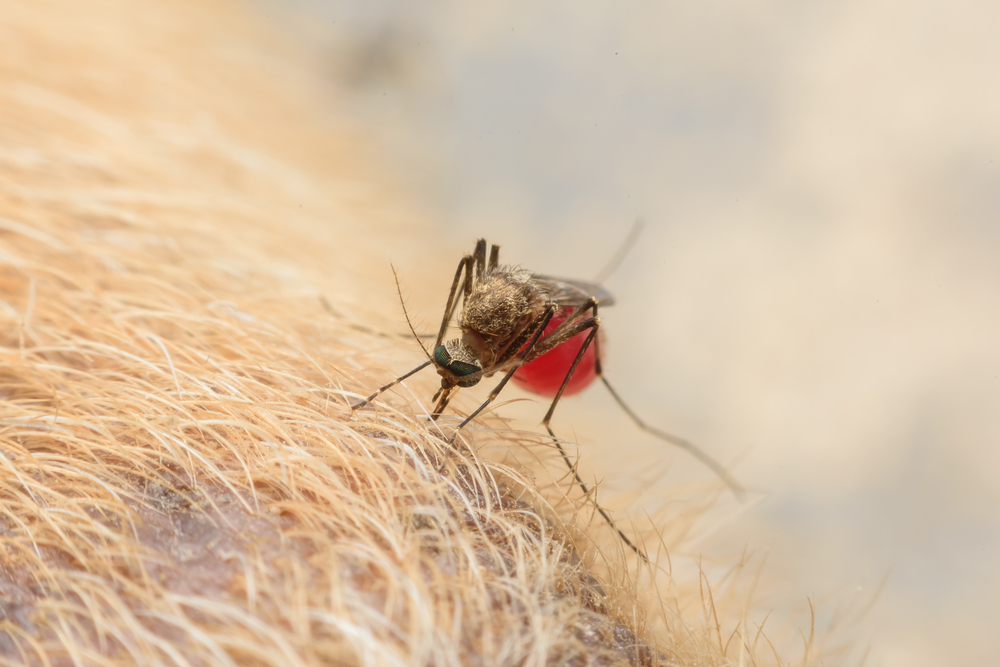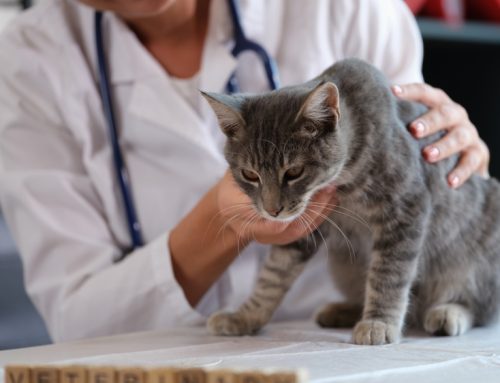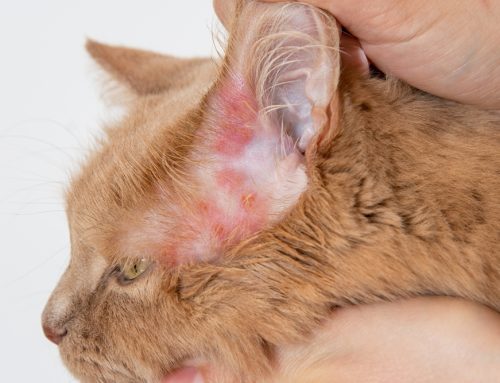Heartworm disease is a common condition in pets, especially those who live in Florida’s warm, wet climate. According to the Companion Animal Parasite Council, 1 in 50 dogs have tested positive for heartworm disease in Levy County this year, so don’t take a chance on these odds.
Don’t break your pet’s heart—or yours—by leaving your furry pal unprotected from parasitic worms. To learn how to keep your four-legged friend safe from this insidious threat, read our Chiefland Animal Hospital team’s guide to heartworm disease and prevention.
What causes heartworm disease in pets?
Heartworm disease is a condition that infected mosquitoes transmit through their bite. Your pet cannot contract heartworm disease directly from other pets or from the environment or objects.
The heartworm life cycle is complex but important to understand. Mosquitoes carrying heartworm larvae (i.e., microfilaria) bite a pet, transferring the immature worms to a host. As the larvae wriggle their way under the skin and through the body, they permanently damage their host’s cardiovascular and respiratory systems and can induce a severe inflammatory reaction.
After a lengthy journey that takes five to six months, the heartworms reach the large blood vessels around your pet’s heart and lungs and they begin reproducing. Mosquitoes can then ingest microfilariae when they take a blood meal from your pet, continuing the heartworm life cycle.
Which pets are most at risk for heartworm disease?
While heartworm disease is commonly thought of as a canine disease, any mammal can contract these parasites, including cats and ferrets. However, heartworms prefer canine hosts, so dogs, wolves, coyotes, and other wild canines are more likely than other mammals to develop an infection.
Pets who live in areas with large wild or stray animal populations have an increased chance of contracting heartworm disease because of the parasite’s reservoir population. Warm, wet climates that are ideal for mosquitoes also experience numerous heartworm disease cases.
Contrary to popular belief, a pet who lives strictly indoors is not safe from heartworm disease, as infected mosquitoes can easily slip in through window screen holes and open doors. Although indoor-only pets have a lower heartworm disease risk than pets who frequently venture outdoors, indoor pets can still contract the disease.
What heartworm disease signs do dogs exhibit?
A dog can harbor heartworms for months or years before exhibiting illness signs, which makes regular prevention and testing imperative. A dog infected with heartworm disease may exhibit the following signs:
- Mild, persistent cough
- Reluctance to exercise
- Fatigue after moderate activity
- Decreased appetite
- Weight loss
As heartworm disease progresses, an infected dog can develop heart failure and a swollen abdomen, which fluid accumulation causes. A dog infected with a large heartworm population can also develop a sudden cardiac blood flow blockage that causes labored breathing, pale gums, and coffee-colored urine. This condition, caval syndrome, is life-threatening and requires worms’ surgical removal.
What heartworm disease signs do cats exhibit?
Cats are not natural heartworm hosts, so their signs differ from those of infected dogs. Infected cats often develop heartworm associated respiratory disease (HARD), exhibiting asthma-like signs, as heartworms primarily affect cats’ lungs rather than their heart. Cats’ heartworm disease signs appear without warning, and, in an acute case, the affected cat may suddenly die. While sudden collapse or death can occur, some affected cats have difficulty walking, faint, or experience seizures. However, cats’ most common heartworm disease signs include:
- Intermittent vomiting
- Diarrhea
- Rapid and difficult breathing
- Coughing and gagging
- Appetite loss
- Lethargy
- Weight loss
How is heartworm disease diagnosed in pets?
Pets’ heartworm disease can be challenging to diagnose, as certain conditions must be met to avoid false-negative results. During a pet’s annual wellness examination, our Chiefland Animal Hospital team takes a small blood sample to perform an in-hospital heartworm test. This rapid test detects antigens adult female heartworms produce, so the results indicate a false negative if a pet has an immature infection, an all-male infection, or too few female worms to produce enough antigens. However, if a rapid test is positive, we send a blood sample to an outside laboratory for confirmation before our team initiates treatment.
How is heartworm disease treated in dogs?
Dogs’ heartworm disease treatment is a lengthy process that includes a series of injections, strict exercise restriction, and follow-up testing to ensure the worms have been eradicated. In most cases, an infected dog receives three arsenic-based compound injections that we administer deep into their lumbar muscles. This medication can make them feel nauseous, and the injections can cause discomfort. For several weeks after your dog receives their final injection, you must restrict their exercise, as a dog who is too active can suffer fatal complications, such as blood vessel blockages the dead and dying worms can cause.
How is heartworm disease treated in cats?
Sadly, no approved heartworm disease treatment is available for cats. Treatment focuses on providing supportive nursing care and managing illness signs in the hope that the affected cat’s immune system will fight the parasites without experiencing life-threatening effects.
How can I protect my pet from heartworm disease?

The only way to protect your pet from heartworm disease is by ensuring they receive parasite preventives regularly. Mosquitoes have no off-season in Florida, so year-round prevention is critical to keeping your furry pal from contracting this disease. Preventives are available in oral, topical, or injectable forms, so product administration is easy and suits your pet’s lifestyle.
If you are unsure which heartworm preventive would be most effective for your pet, call our Chiefland Animal Hospital team to discuss your furry pal’s options.








Leave A Comment